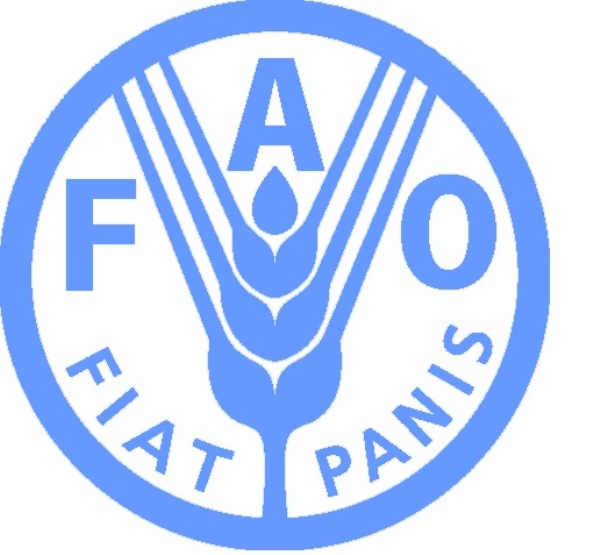

CFS set to endorse principles for responsible investments in agriculture and food systems / International forum will also endorse policy recommendations on food losses and waste and sustainable fisheries and aquaculture
Africa October 13, 2014

ROME, Italy, October 13, 2014/African Press Organization (APO)/ — The Committee on World Food Security, the world’s foremost inclusive intergovernmental and multi-stakeholder platform for food security and nutrition, today opened its 41st session (CFS 41). The Committee is expected to adopt a set of principles for responsible investment in agriculture and food systems that have been in development for the past two years.
“Progress against hunger continues,” said FAO Director-General José Graziano da Silva in his address to the CFS. He cited FAO figures showing that about 805 million people are chronically undernourished in the world today, some 209 million less than in 1990-92.
“Food security is everyone’s business. It is a society – not a government – that decides to eradicate hunger and achieve food security. Political commitment and leadership from governments is the first step. However, civil society, private sector and other non-state actors also need to embrace this goal. At the global level the CFS promotes an enabling environment for this to happen,” the FAO chief said.
Reading out an address to the CFS by UN Secretary-General Ban Ki-moon, UN Assistant Secretary-General, Thomas Gass, said the CFS’ “focus on knowledge and expertise, on rights and effective multi-stakeholder dialogues and partnership is advancing our shared work to realize my vision of a world with zero hunger.”
Since its establishment the CFS has envisaged a future without hunger and I share that vision. A focus on rights, on sustainable waste-free food systems and on responsible, accountable collaboration between stakeholders will, help us tackle root causes of food and nutrition insecurity,” the UN Secretary-General said.
CFS Chair Gerda Verburg said that reports on food insecurity and malnutrition all emphasize the key role played by responsible and sustainable investments in agriculture and the food system.
“This is why we have negotiated principles for responsible investment in agriculture and food systems, which are on the agenda for endorsement at this session,” of CFS, Verburg said. These would foster “not only more but especially better investment in agriculture and food systems to meet the challenge of sustainable global food and nutrition security for all.”
In her address, Ertharin Cousin, Executive-Director of the World Food Programme (WFP) said that the CFS session is taking place at a time “when our … is increasingly fragile.”
“An unprecedented number of shocks, stresses and-ever-more complex-crises now threaten food and nutrition security, repeatedly proving that without stability-the fourth dimension of food security-food systems can quickly collapse, sometimes in matter of weeks, to humanitarian crisis, setting back years of progress in hunger reduction,” Cousin said.
In his statement to the opening of the CFS, International Fund for Agricultural Development (IFAD) Vice President, Michel Mordasini, noted how “investing into rural transformation and smallholder farming is pivotal for achieving national and global food and nutrition security, as well as for ending poverty.”
Policy roundtables
During CFS 41, the first of two policy roundtables will focus on the issue of food losses and waste, which currently amount to one-third of food produced worldwide.
Topics include the need to identify the causes of food losses and waste through an integrated perspective along the food chain and to consider any interventions as part of the whole, not in isolation.
Participants were expected to debate the findings of a scientific report by the High Level Panel of Experts on Food Security and Nutrition (HLPE). CFS participants were also to discuss the technical, economic and cultural dimensions of such waste and losses as well as ways to curb the negative impact on food security and nutrition.
Improved labelling and other forms of information for producers and consumers are among the measures to curb losses and waste identified by the HLPE.
The second roundtable, deals with the increasingly critical – but often not duly recognized – contribution made by fish to food security and to healthy diets, as specified in an HLPE report.
Farmed fish production has increased 12-fold over the last three decades and is the fastest growing food production sector, both in small and large scale systems. Most of the fishers or fish farmers, fish processing and/or trading people live in developing countries, earn low income, often depend on informal work. They need decent work and social protection and gender sensitive approaches. A very high number of female workers are engaged in fish processing and in informal small-scale fish trading operations. Governance is particularly important to determine access to fisheries resources, integrity of fisheries resources and distribution of fish benefits.
The HLPE report stressed the importance of international partnerships and initiatives on oceans and fish to better link fish production growth, sustainability and food security and nutrition
CFS participants highlighted the importance of the Voluntary Guidelines on Small-Scale Fisheries adopted earlier this year by the FAO Committee on Fisheries.
Ahead of the CFS, countries agreed on a series of policies aimed at ensuring that people around the world have access to healthier diets. The agreement, consisting of a Declaration and a Framework for Action will be adopted at the Second International Conference on Nutrition (ICN2) to be held in Rome from 19-21 November 2014. This high-level intergovernmental meeting is jointly organized by FAO and WHO.
Source: AFRICAWIN






